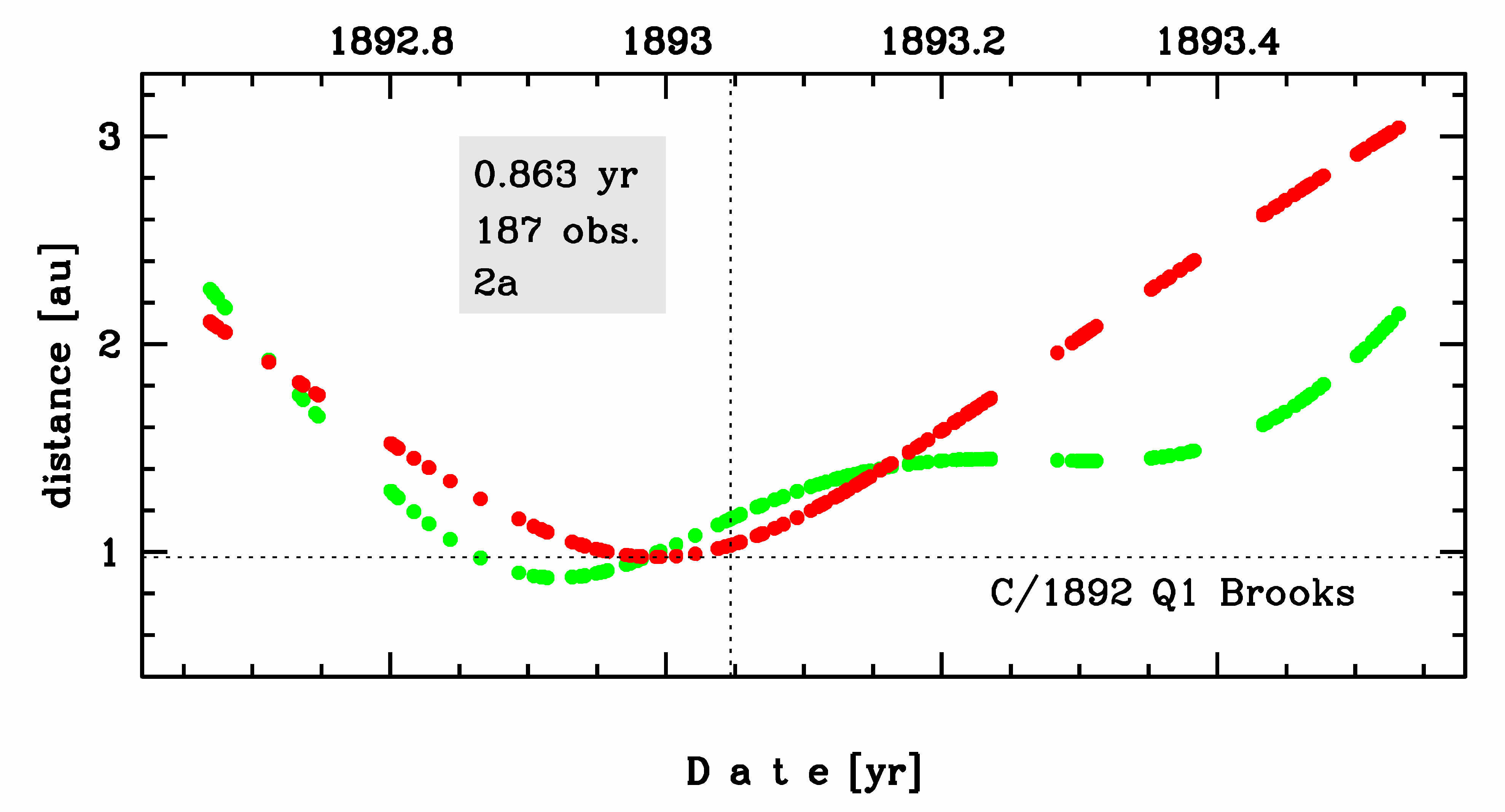C/1892 Q1 Brooks
more info
C/1892 Q1 was discovered on 28 August 1892 by William Robert Brooks (Smith Observatory at Hobart College, Geneva, New York, USA), that is about 4 months before its perihelion passage, and it was last seen on 19 July 1893 [Kronk, Cometography: Volume 2].
This comet made its closest approach to the Earth on 12 December 1892 (2.27 au), that is about two weeks before perihelion passage.
Solutions given here are based on data spanning over 0.863 yr in a range of heliocentric distances from 2.11 au through perihelion (0.976 au) to 3.04 au.
This Oort spike comet suffers moderate planetary perturbations during its passage through the planetary system; these perturbations lead to a escape the comet from the planetary zone on hypebolic orbit (see future barycentric orbits).
See also Królikowska 2020.
This comet made its closest approach to the Earth on 12 December 1892 (2.27 au), that is about two weeks before perihelion passage.
Solutions given here are based on data spanning over 0.863 yr in a range of heliocentric distances from 2.11 au through perihelion (0.976 au) to 3.04 au.
This Oort spike comet suffers moderate planetary perturbations during its passage through the planetary system; these perturbations lead to a escape the comet from the planetary zone on hypebolic orbit (see future barycentric orbits).
See also Królikowska 2020.
| solution description | ||
|---|---|---|
| number of observations | 187 | |
| data interval | 1892 09 01 – 1893 07 13 | |
| data type | perihelion within the observation arc (FULL) | |
| data arc selection | entire data set (STD) | |
| range of heliocentric distances | 2.11 au – 0.98 au (perihelion) – 3.04 au | |
| detectability of NG effects in the comet's motion | comet with determinable NG~orbit | |
| type of model of motion | GR - gravitational orbit | |
| data weighting | YES | |
| number of residuals | 343 | |
| RMS [arcseconds] | 3.20 | |
| orbit quality class | 1b | |
| orbital elements (heliocentric ecliptic J2000) | ||
|---|---|---|
| Epoch | 1893 01 17 | |
| perihelion date | 1892 12 28.58649702 | ± 0.00021440 |
| perihelion distance [au] | 0.97598553 | ± 0.00000198 |
| eccentricity | 1.00047063 | ± 0.00001236 |
| argument of perihelion [°] | 252.652979 | ± 0.000251 |
| ascending node [°] | 266.034834 | ± 0.000180 |
| inclination [°] | 24.801576 | ± 0.00014 |
| reciprocal semi-major axis [10-6 au-1] | -482.21 | ± 12.67 |
